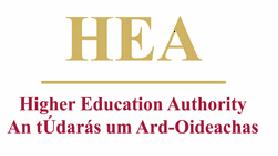Theoretical Physics: Junior Sophister year
During their Junior Sophister year, students take 30 ECTS credits of compulsory modules in Mathematics, 20 ECTS credits of compulsory modules in Physics and 10 ECTS credits of Open Modules. A precise list of the available options is given below. Unless indicated otherwise, each module is worth 5 ECTS credits.Yearlong Compulsory Modules
Semester 1 Compulsory Modules
Semester 1 Open Modules
Semester 2 Compulsory Modules
Semester 2 Open Modules
General regulations for undergraduate students
The general regulations that apply to all undergraduate students are outlined in the College Calendar (Part II). The following is only a brief summary of some important points and it is not meant to either replace or override the information in the College Calendar.
- All students must register for 60 ECTS credits and those must be divided equally between the two terms.
- Students will only be assessed on their registered modules.
- Results for examinations are published according to the following grades: I = 70 to 100, II.1 = 60 to 69, II.2 = 50 to 59, III = 40 to 49, F1 = 30 to 39, F2 = 0 to 29.
- In order to pass an individual module, students must achieve an overall score of 40% or higher.
- In order to pass the year, students must achieve an overall
credit-weighted average of 40% and EITHER
- pass each of their modules (by achieving 40% or higher in each of their modules) OR
- pass by compensation (by achieving 40% or higher in modules that are worth at least 50 ECTS credits and by achieving 35% or higher in their remaining modules).
- Students who do not pass the year at the end of the Hilary term are required to present for reassessment at the beginning of the next Michaelmas term. These students will be reassessed in all failed components of the modules for which they obtained a score below 40%.
- Students who do not manage to pass the year at the reassessment session must repeat the year in full (i.e., they must repeat all their modules and all their assessment components).
These regulations apply since the academic year 2018/19.
Sources of Information
The University of Dublin Calendar
All courses within Trinity College are administered in accordance with the regulations set out in the The University of Dublin Calendar which is published annually. The section of the Calendar setting out the general regulations of the College is published separately in the booklet General Regulations and Information and Board Statement on Safety which is distributed to all students on admission to College.
Important information
- All students should study the requirements of the university with regard to avoiding plagiarism. In particular all students are required to certify, on submitting assignments etc., that they have read and understood the plagiarism provisions in the General Regulations of the University Calendar for the current year found at https://www.tcd.ie/calendar, and that they have also completed the Online Tutorial on avoiding plagiarism ‘Ready Steady Write’ located at https://www.tcd.ie/library/support/plagiarism/story_html5.html.
- Student Guidelines concerning Examinations and Assessment are available on the College web site.
- For students with special requirements resulting from disabilities, there are special arrangements that can be made.
- For dates of terms and other College dates consult the Academic Year Structure listed on the College website.
- For information on their academic progress, including information on course and module registrations, lecture timetables, examination timetables and examination results, students should log into My.tcd.ie (the student administration portal) with their College username and password.
- Some modules may require students to log into MyModule (Blackboard) for lecture notes and slides, and for assessment purposes (online completion of tests , submission of assignments, etc.).
- There is a Student Homepage on the College website, which may be accessed via a link from the TCD Local page.
Please note that The University of Dublin Calendar should be consulted for definitive information about the rules, regulations, and activities of the University.




This course is funded by the Irish government under the National
Development
Plan 2007-2013 and aided by the European Social Fund (ESF) under the
Human
Capital Investment Operational Programme 2007-2013.

